 General Information
General InformationGreen Roofs
Rainwater Harvesting
Ponds and Wetlands
Energy-Efficient Building
Waterproofing
EPDM Roofing
Preparation
Basic Procedure
Multiple Walls
Details
Folded Inside Corners
Molded Inside Corners
Taped Inside Corners
Molded Outside Corners
Taped Outside Corners
Posts
Skylights
Outside Edges
Inside Edges and Sills
Edge Transitions
Pipe Boots
Curved Penetrations
Roof Drains
Scupper Drains
Overlap Seams
Butt Seams
Edges
Coverings
Components
Acrylic Roofing
Documents

EPDM ROOFING: INSIDE EDGES AND SILLS
TAPED INSIDE EDGES: An inside edge is created when two roof edges intersect at an angle less than 180°. In order to fold the rubber over both edges, the roof membrane must be cut at a 45° angle to both edges. A square of Uncured Laminate Tape placed on the roof surface, overhanging the roof edge, can be stretched and formed to make contact with all surfaces, sealing the corner slit. Bonding Adhesive, Termination Tape, and Termination Bars assure a watertight edge.
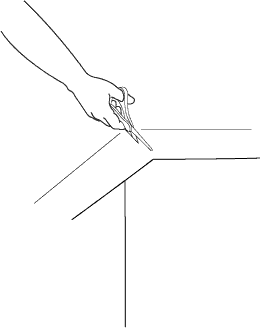
STEP 1: Cut the overhanging
rubber at a 45° angle to both edges.
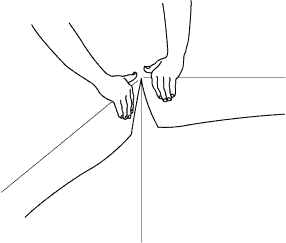
STEP 2: Fold and adhere the rubber
over both edges, pressing into the tape.
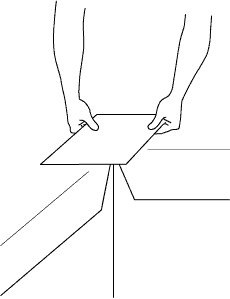
STEP 3: Place a square of Uncured Laminate
Tape so that it extends 2” over the roof edge.
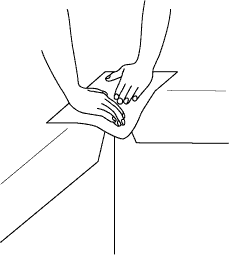
STEP 4: Begin to stretch the
tape downward over the edge.
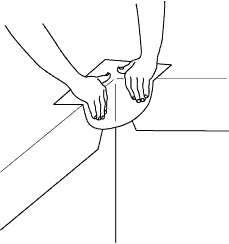
STEP 5: Finish forming the tape until
it stretches and bonds to all surfaces.
TAPED DOOR SILLS: If door sills can be flashed before the door frames are installed, the rubber roof membrane can create a drip pan under the door that will eliminate the possibility of water leakage. Frame the opening at least 6” higher than the roof surface with the sill plate sloping slightly towards the exterior. Adhere the rubber up the wall (covering the door opening), slit the rubber, form the rubber over the door sill, and seal both sides of the opening using Uncured Laminate Tape.
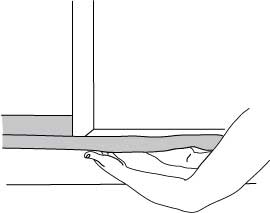
STEP 1: Adhere the rubber sheet to
the
wall continuing above the sill plate.
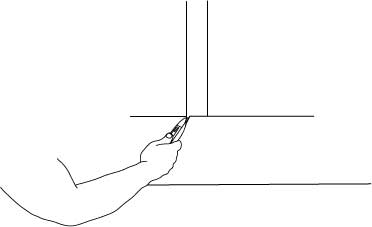
STEP 2: Cut a vertical slit on
both sides of the door opening.
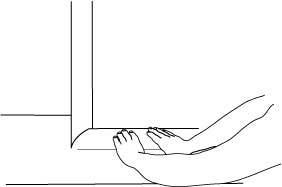
STEP 3: Fold the rubber over the
door sill
and adhere it in place.
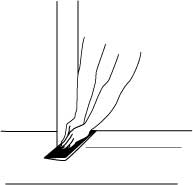
STEP 4: Position a strip of Uncured Laminate
Tape so that it extends 2” over the roof edge.
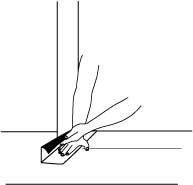
STEP 5: Lift the tape to
make contact with the wall.
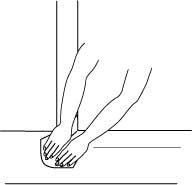
STEP 6: Form the tape over the edge so
that it stretches and bonds to all surfaces.